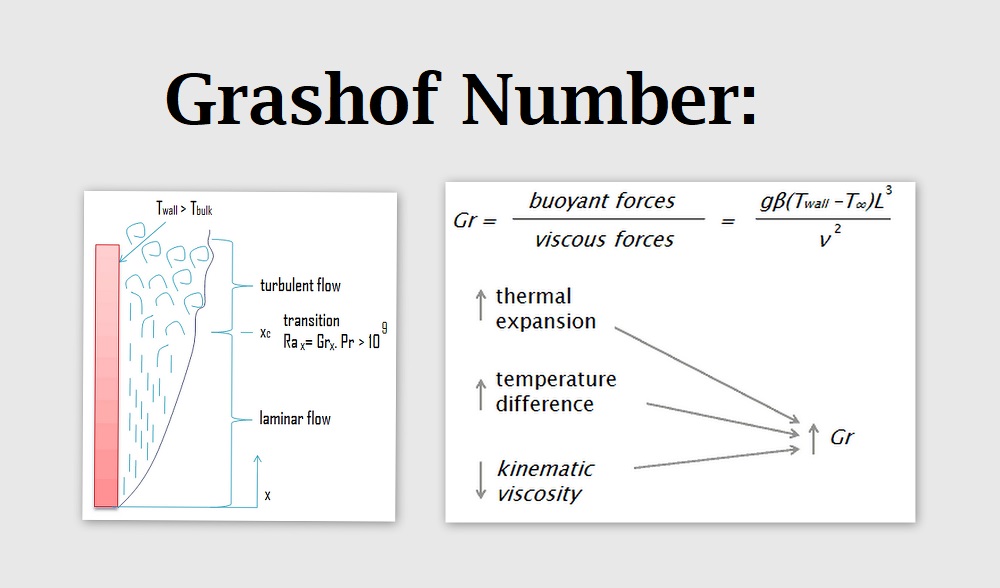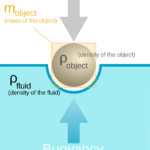Grashof Number is a non-dimensional number used both in fluid mechanics and heat transfer. This number is frequently used in cases where natural convection is involved. It is named after a German engineer Franz Grashof. There are many dimensionless groups or numbers available which come into play according to the respective dominant forces associated with the numbers. For more info go through this link –
· Dimensionless Groups used in Fluid Mechanics and Heat Transfer.
What is Grashof Number ?
Grashof Number is use where buoyancy force is predominant. Mathematically Grashof number is the ratio of buoyancy force to viscoud force.
Mathematical Representation of Grashof Number –

where:
g = gravitational acceleration
β = coefficient of thermal expansion
Ts = surface temperature
T∞ = bulk temperature
L = vertical length
ν = kinematic viscosity ( = dynamics viscosity / density )
Physical Significance of Grashof Number
· The most common use of grashof number is to check the fluid flow behaviour around a new prototype to ensure its use in the practical field. Most of the times scaled models of the desired prototype is tested under similar environment. Grashof numbers comes handy when buoyancy and viscous forces are very important.
· It represents how dominant is the buoyancy force which is responsible for the convection comparing to the viscous forces.
· Grashof number is very similar to the reynold’s number . Only difference is that Reynolds Number is used for forced convection cases where Grashod number is used for natural convection phenomenon.
· Nusselt Number is a function of Prandtle Number and Grashof Number.
· Reynolds umber Categorizes the flow as laminar. transition and turbulent flow in forced convection cases. Grasfof number does the same in natural convection.
· Grashof number is a function of buoyancy force, inertia force and viscous force.


